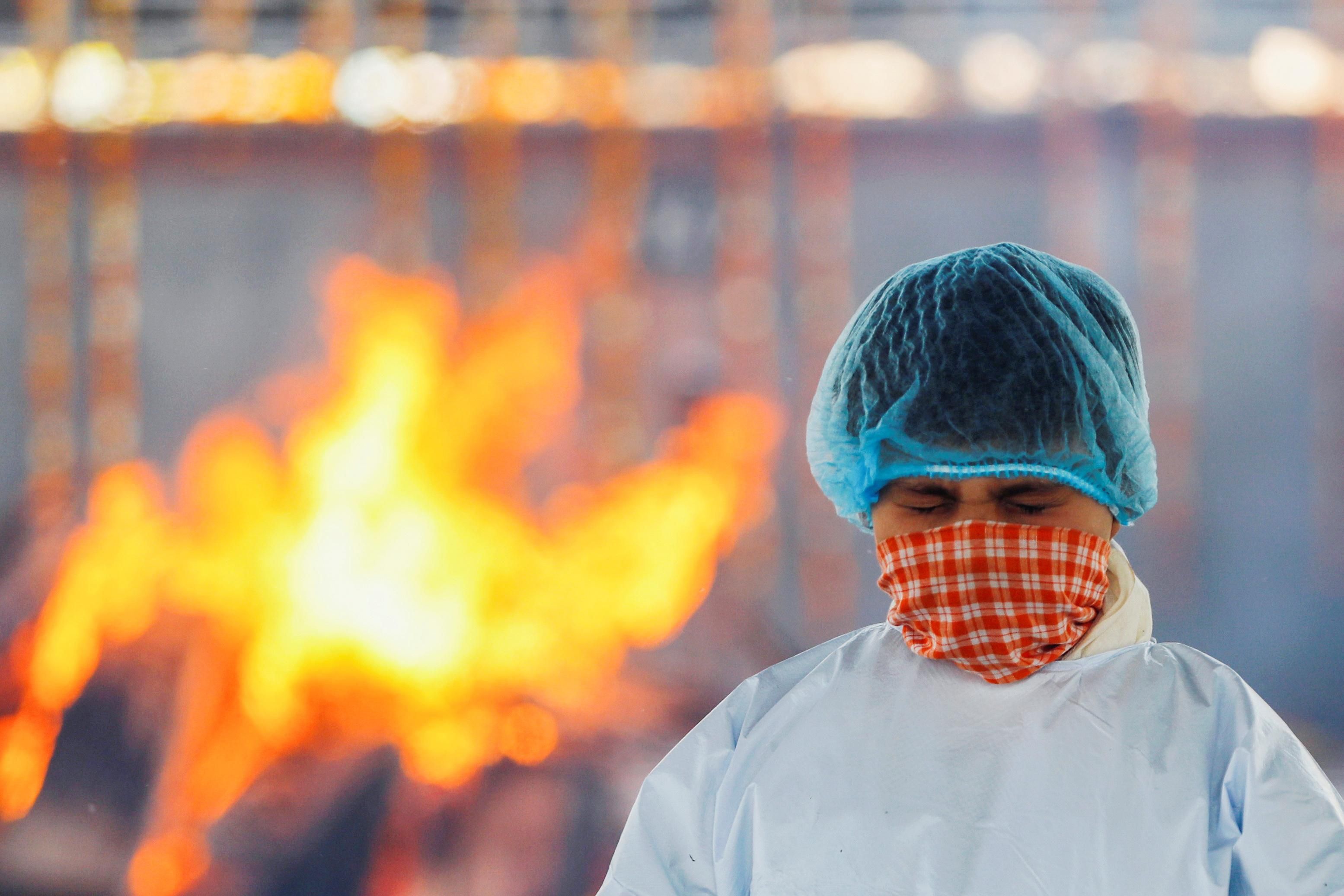First it was Europe. Then the US. And later Brazil. Right now, India is the global epicenter of the coronavirus pandemic.
India is breaking world records for daily COVID infections (and the real number could be much higher). Hard-hit cities like New Delhi are running out of hospital beds, while the black-market prices of oxygen and (often fake) drug remedies are skyrocketing. Since crematoriums are full, many Indians must burn their dead on the street or in mass pyres.
The country of 1.4 billion, once lauded for its better-than-expected pandemic response, is now losing the battle against a virus that has quickly overwhelmed its fragile health system. Whatever happens next, the crisis is already a major test for India's immensely popular leader.
How did we get here? Just two months ago, India's fatality rates per capita were still lower and recovery rates per infection higher than those of other COVID hotspots. New cases had started to decline by late February, weeks after the government had kicked off its ambitious vaccination drive. But that's when the trajectory changed abruptly: infections and deaths began spiraling out of control, largely as a result of a deadlier new local variant, and less adherence to social distancing and mask-wearing. Government decisions also contributed directly.
Politics first. Opponents of Prime Minister Narendra Modi say he jumped the gun by declaring early victory over the pandemic. Emboldened by his initial success in keeping (reported) deaths low, Modi allowed huge crowds to gather for state election campaign rallies and mass religious festivals like Kumbh Mela, which became super-spreader events.
But somewhat surprisingly for the PM, who took COVID seriously from the start, this time he chose to score political points instead of heeding public health warnings. First, his ruling BJP party has a shot at winning for the first time in West Bengal, currently governed by a prominent Modi critic. Second, Modi — a staunch Hindu nationalist — didn't want to take the heat from his base by cancelling Kumbh Mela, considered the world's largest religious gathering, which occurs every 12 years and entails millions of devout Hindus bathing together in the Ganges to purify their souls.
Vaccine nationalism vs vaccine diplomacy. As the virus rages, Modi is also under growing pressure to accelerate India's sluggish vaccination campaign. Despite being one of the world's top vaccine makers, barely 1.5 percent of Indians have been fully inoculated so far.
Interestingly, the slow pace has been blamed in part on dwindling supplies in Maharashtra state, home to both the worst of the current outbreak and to the Serum Institute of India, which is producing tens of millions of doses of jabs for domestic consumption... and until recently for other countries. The government suspended exports a month ago to contain the current COVID surge, but many Indians are now asking why the PM didn't prioritize his own people earlier.
The US assistance conundrum. Over the weekend, a host of foreign powers offered to help India in this time of need. One of them was the US, where the Biden administration will temporarily lift export restrictions on raw materials to make vaccines so India can ramp up its domestic production.
For Modi, the US assistance is both good and bad news. On the one hand, the Serum Institute welcomes the raw materials needed to get more shots in the arms of Indians. On the other hand, what India really wants is for the Americans and others to temporarily waive intellectual property rights so that it can manufacture as much vaccine as it wants without worrying about patents.
So, how will this all affect Modi? There are no recent polls yet to determine whether the current wave of disease and death has hurt Modi's popularity. But he is worried enough about social media backlash against his handling of the crisis that the government has demanded Twitter block critical posts.
Modi has shown an uncanny immunity to political challenges since he took power in 2014. Botching currency reform in 2016 had little effect on his support, which also survived mass protests over a controversial anti-Muslim citizenship law right before the pandemic, and more recently huge rallies led by farmers. But with over 2,000 people dying daily and no end in sight, will Modi be able to defy political gravity much longer?- Modi and Trump sing a duet in Bollywood | Puppet Regime - GZERO ... ›
- COVID is ravaging these countries: How are their leaders doing ... ›
- Modi defies gravity - GZERO Media ›
- Podcast: Journalist Barkha Dutt on India’s COVID calamity - GZERO Media ›
- As India gasps for air, a government “still in denial” - GZERO Media ›
- India’s “Darwinian” COVID response: “Indians have been left to fend for themselves” - GZERO Media ›
